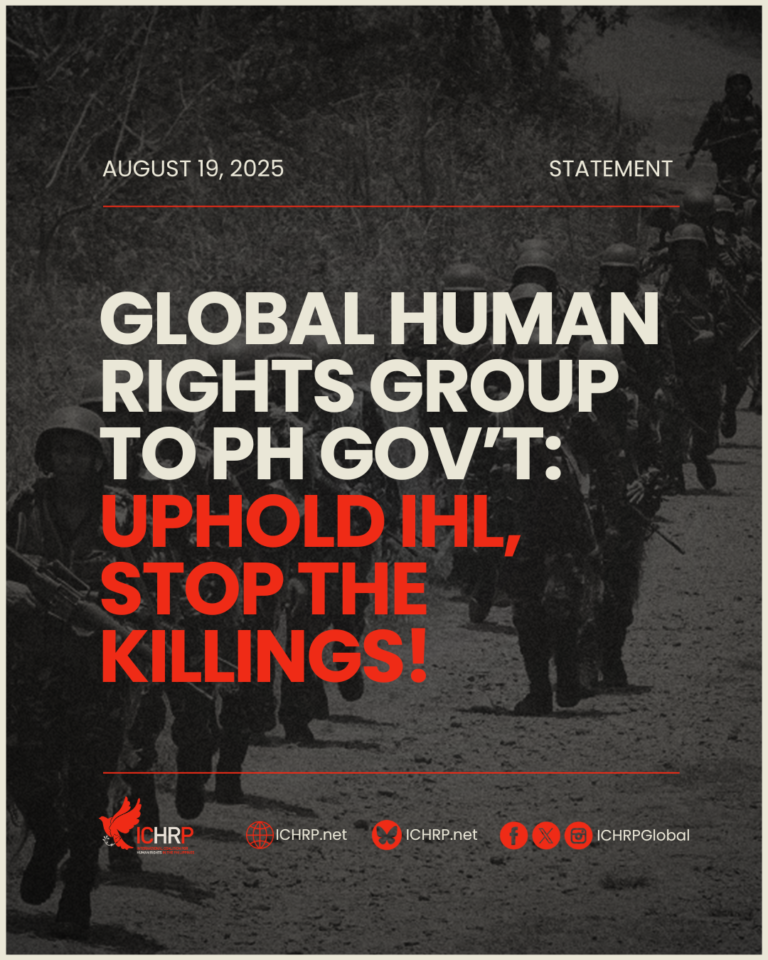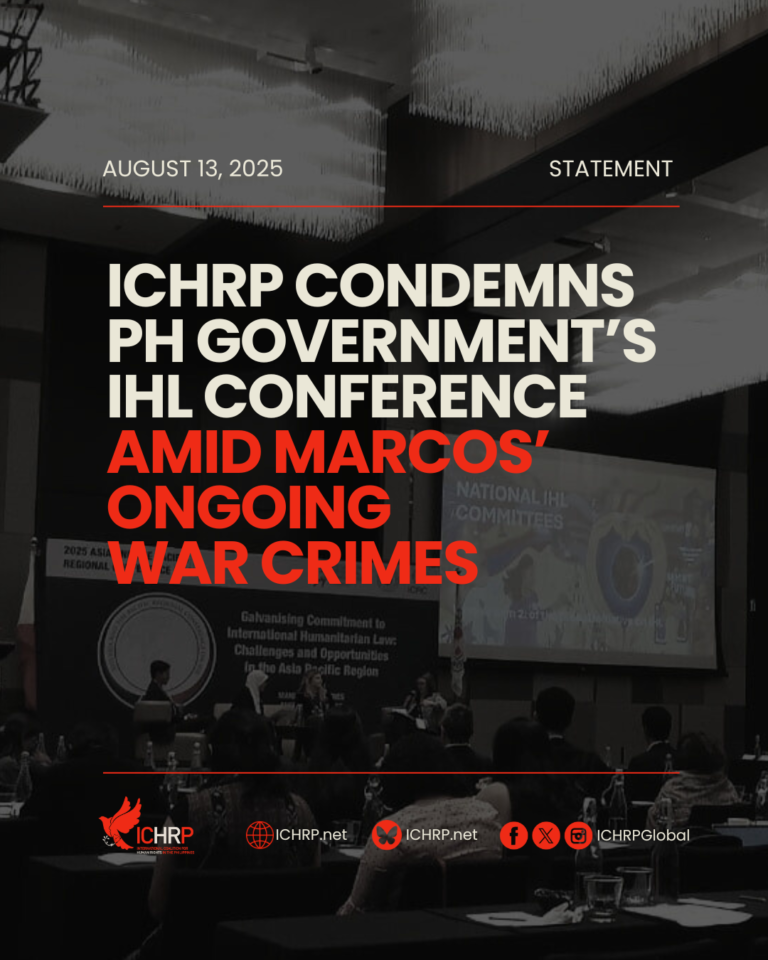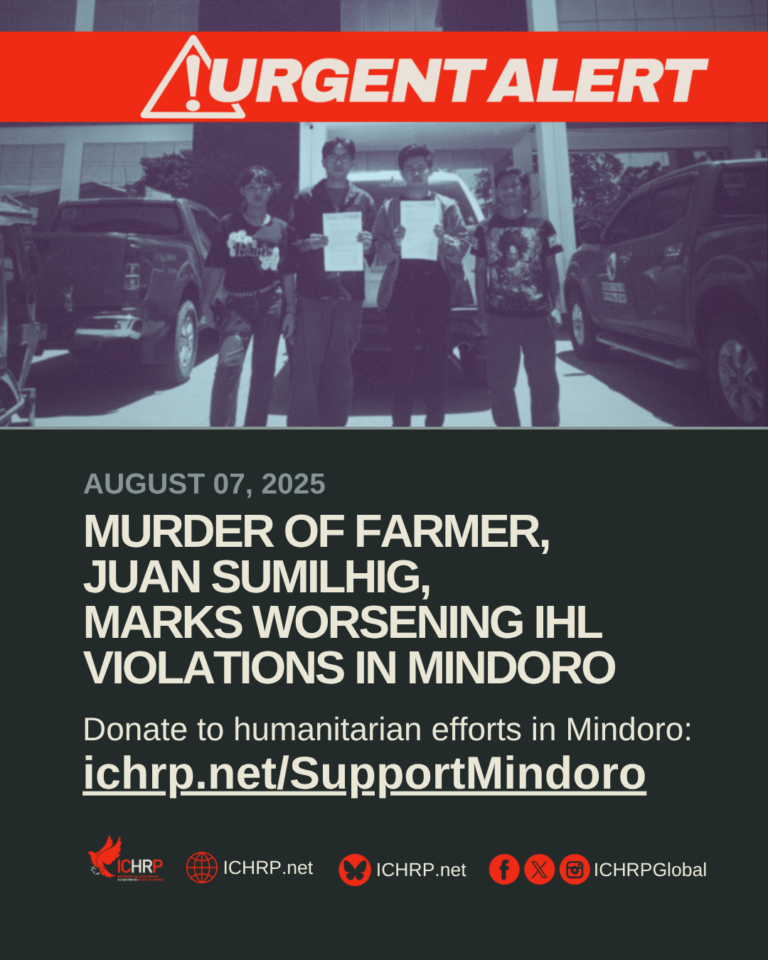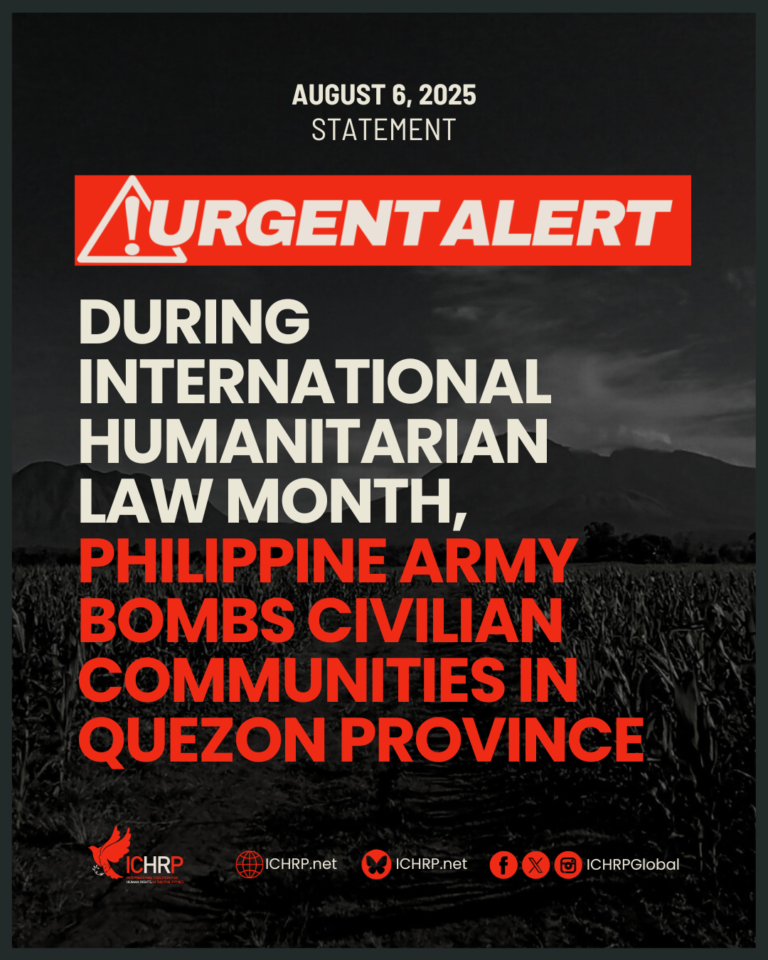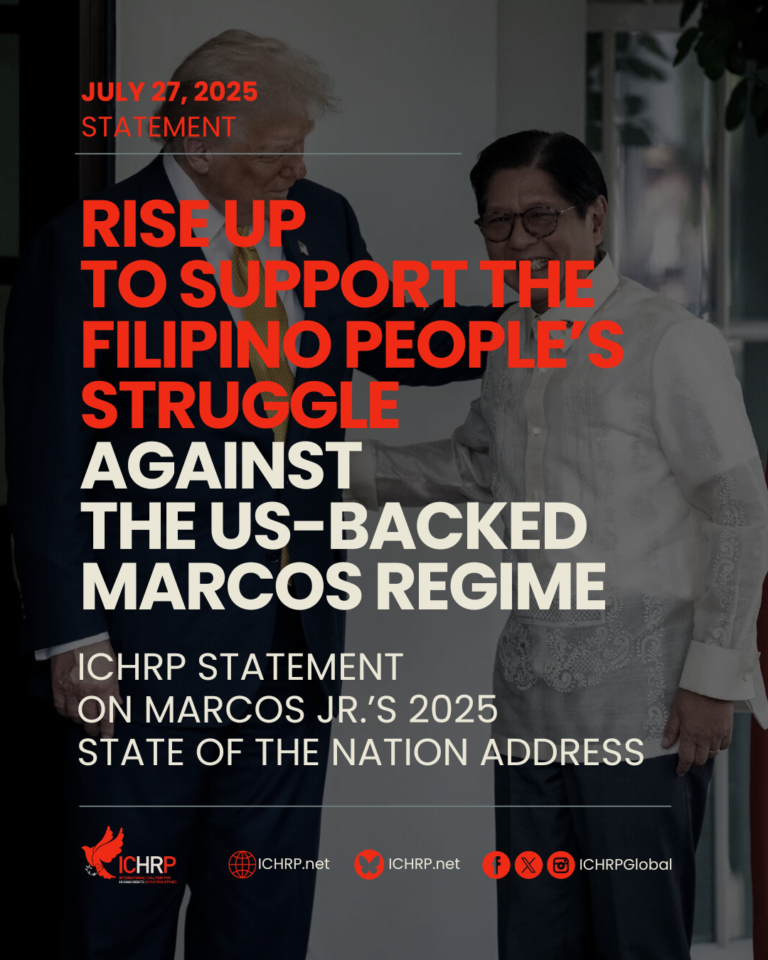ICHRP Statement on Marcos Jr.’s 2025 State of the Nation Address
July 27, 2025
As President Ferdinand Marcos Jr. delivers his fourth State of the Nation Address (SONA), the International Coalition for Human Rights in the Philippines (ICHRP) expresses support for the protests today in the country and abroad. Amid thunderstorms, Filipinos brave the rain and bring to the streets the real conditions plaguing the masses and their democratic demands. We support their call to hold the Philippine government accountable for its innumerable violations of human rights and international humanitarian law (IHL), its glaring neglect of the people’s political, social, and economic demands, and Marcos Jr.’s puppetry to the US. We call an end of foreign economic and military support of the Marcos regime, and join the Filipino people in their fight and our common aspiration for peace based on justice.
Worsening fascism and counterinsurgency
Contrary to Marcos Jr.’s national slogan of “Bagong Pilipinas” (New Society), the Filipino people under his watch did not experience anything new – activists, indigenous peoples, human rights defenders, environmental defenders, workers, and peasants continue to suffer from widespread human rights and IHL violations.
Marcos Jr. has consistently tried to distance himself from his predecessor Duterte’s bloody six-year reign of terror, but in reality they are cut from the same fascist cloth. From July 2022 to December 2024, human rights group Karapatan recorded 119 extrajudicial killings, 255 illegal arrests, 14 enforced disappearances, 560 forced or fake surrenders, 46,921 victims of indiscriminate bombings, 43,582 victims of forced evacuation, 63,380 victims of indiscriminate firing, and an alarming 3,706,431 victims of threats, harassment, and intimidation. Most of the victims come from peasant communities in the Philippine countryside.
These violations, as perpetrated by the State, are aligned with the US-backed counterinsurgency program of Marcos Jr. and implemented through his National Security Program (NSP) of 2023-2028. Through a whole-of-nation approach, the Philippine government uses the National Task Force to End Local Communist Conflict (NTF-ELCAC) and co-opts civilian state agencies to red-tag, terror-tag, harass, surveil, abduct, and outright kill activists and civilians. These constitute massive and grave violations of IHL.
Red-tagging also emerged as the top electoral violation recorded by the recently concluded International Observer Mission (IOM) last May 2025. The IOM concluded that the widespread, coordinated, and systemic manner of these incidents strongly suggest it was well-funded, state-backed, and form part and parcel of the counterinsurgency program of the Philippine government.
Blatant neglect of the people’s demands
Amid skyrocketing prices of goods, low wages, inaccessible health care, and increasingly privatized social services, Marcos Jr. remains deaf to the demands of the toiling Filipino masses. He approved a measly P50 (USD 0.87) wage hike last June, a far cry from the workers’ call for a P1,200 (USD 21) living wage. Despite public outcry and demand by the people to hold Vice President Sara Duterte accountable for her crimes, Marcos Jr. has dilly-dallied and used his influence in the Senate to stall her impeachment. Now, the Philippine Supreme Court has shot down the impeachment complaint against Duterte, effectively blocking another path to accountability and justice.
The Philippines as a springboard for US-led war
Under the Marcos Jr. government, the Philippines is quickly being sucked into the vortex of war between the US and its imperialist rival China. Aside from the massive Balikatan military exercises participated by 15,000 troops from 20 countries held in April this year, several smaller military exercises have seen an increase in frequency over the past months – Salaknib, Kamandag, Cope Thunder, and Sama Sama.
Marcos Jr. has also allowed the entry and build up of an alarming number of US military sites in the Philippine archipelago. These include: the addition of four more Enhanced Defence Cooperation Agreement (EDCA) sites in undisclosed locations, the deployment of the NMESIS and Typhon missile systems in the northern province of Batanes, the building of a naval repair facility in Palawan province, and the recent plan to build an ammunitions factory in Subic, Central Luzon.
The planned US-funded Subic-Clark-Manila-Batangas (SCMB) railway project aims to facilitate efficient transport of US military weapons and troops in different locations in the island of Luzon, contrary to its supposed aim to boost trade in the region as a logistical hub. These are all war preparations for the US and shamelessly Marcos Jr. has dragged the country and its people into the impending conflict.
While typhoons flooded communities and devastated millions of Filipino people, Marcos Jr. was in the White House securing lopsided trade, security, and defense deals that only benefit the interests of his US masters. Despite reassuring the people of his trip’s benefits to the Philippine economy, he only managed to lower the tariff rate of Philippine exports to the US by one percent (now 19 percent), while allowing zero tariffs for US goods into the country.
He also secured deals with big US capitalists which means more plunder of the country’s resources and cheap labor. He has doubled down on neoliberal policies that will further open up the already liberalized Philippine economy. Local producers and small businesses will bear the brunt of these deals while peasants and working peoples sink further in the quick sand of poverty and destitution.
ICHRP calls on the international community to support the Filipino people’s demand to hold Marcos Jr. and his government accountable for countless crimes, gross neglect of duty, kowtowing to US dictates, and dragging the Filipino people into the US-led war against China.




